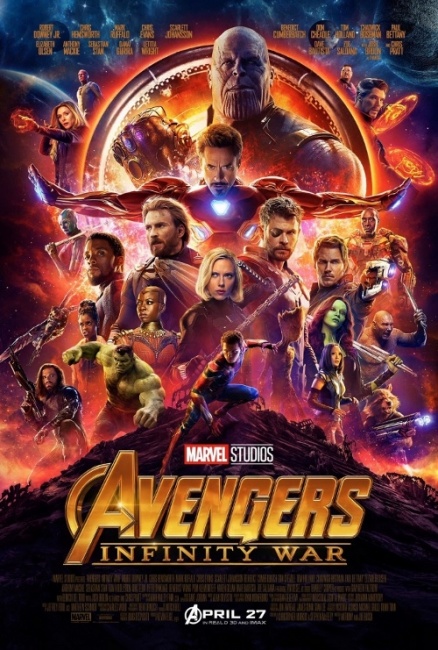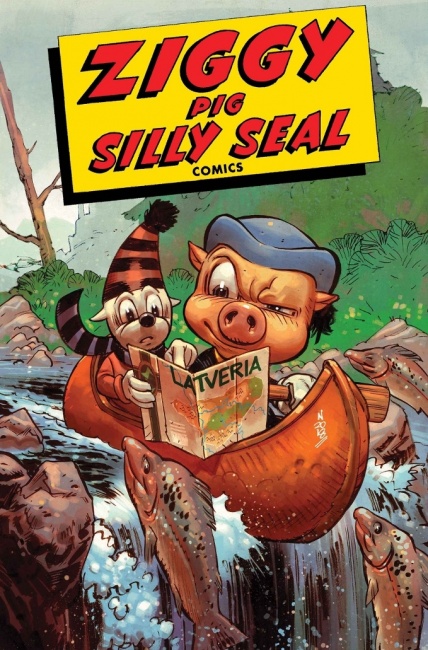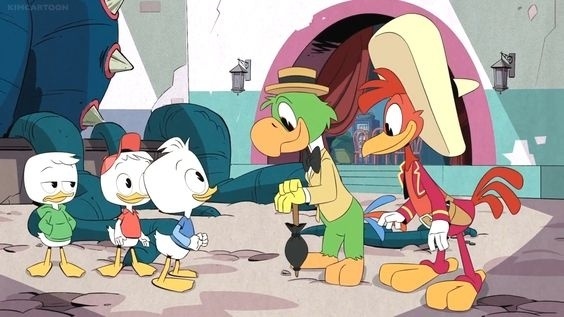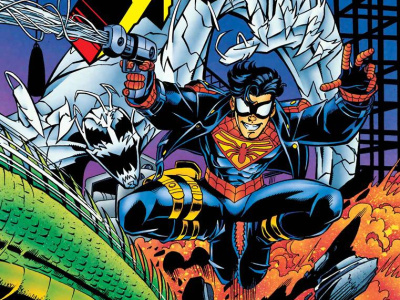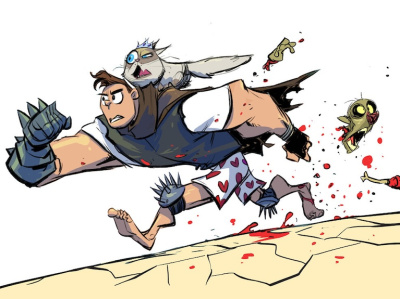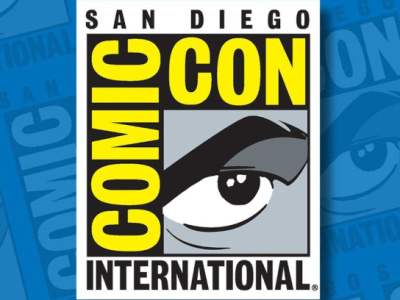Confessions of a Comic Book Guy is a weekly column by Steve Bennett of Super-Fly Comics and Games in Yellow Springs, Ohio. This week, Steve Bennett looks at recent news stories about the possible harmful effects of superheroes.
The first time I saw the story it was on the Ars Technica website in a piece titled, "Forget movie villains--it’s the 'good' superheroes that are the most violent," which came with the subheading "Heroes are more likely than villains to fight and even murder." But over the next couple of days, I kept seeing it in various forms online in sites from the UK to Indonesia. Always with headlines like, "Hollywood superheroes are actually super bullies”, “Forget movie villains--it’s the 'good' superheroes that are the most violent," "Superheroes are MORE violent than villains and send ‘negative messages’ to kids," "Hollywood superheroes are actually super bullies," and my favorite, "From Spiderman to Batman: Superheroes are MORE violent than villains as scientists urge children not to ‘emulate their idols’."
The story behind those headlines was "…at the annual meeting of the American Academy of Pediatrics," where "Pennsylvania pediatrician Robert Olympia and his colleagues sat through 10 superhero movies released in 2015 and 2016, cataloging each specific act of violence and noting whether it was committed by a protagonist or villain." Their findings: heroes performed more violent acts, used more lethal weapons and committed more murders than the villains.
In a statement, Dr. Olympia (which would make a pretty good name for either a hero or a villain) said, "Pediatric health care providers should educate families about the violence depicted in this genre of film and the potential dangers that may occur when children attempt to emulate these perceived heroes." And John Muller, a medical student who presented the findings, suggested the films should be watched as a family so the consequences of violence could be discussed. He said, "In passively co-viewing violent media, there is an implicit message that parents approve of what their children are seeing, and previous studies show a corresponding increase in aggressive behavior." And by "taking an active role in their children's media consumption by co-viewing and actively mediating…, parents help their children develop critical thinking and internally regulated values."
From these headlines, I had been expecting an anti-superhero diatribe, but Dr. Olympia and Mr. Miller’s suggestions seem entirely reasonable. And if the statistics about superheroes in superhero movies committing violent acts cited are accurate, it makes one wonder what a similar study would find in superhero comic books.
But if you do want to read an anti-superhero diatribe, might I suggest "’These men are bad role models’; will my son get over his superhero obsession?" by Tanya Gold which appeared in the UK’s Guardian. Its subhead: "Superman, Batman, Iron Man, can a little boy be rescued from their-like grip?" Gold is entirely upfront about the fact that she doesn’t care for superheroes ("this cultural import from America, and as fashionable as rage") or their films ("I watch the interminable sequence of Avengers and X-Men films with ever-growing boredom and disgust"), but her real concern is for her young son who is "obsessed" with them.
Obsessed has been placed in quotes because, from her descriptions of him, her son seems to be a perfectly ordinary little boy who happens to like superheroes. However, I’ll concede that as a parent, Gold has good reason to be concerned about the violence and aggression in superhero films and how it might affect her child. But if she considers movie superheroes bad role models, she should be made aware that there are superheroes who are good role models. They can be found in the pages of the many kid-friendly superhero comics being published by Marvel and DC.
I’ve long encouraged Marvel to revive some of their more odd and obscure characters, like Ziggy Pig and Silly Seal. I’ve been advocating their revival here since 2006 (see "Confessions of a Comic Book Guy - Comic Book Extras"), so you can imagine my joy and disbelief when I read on ICv2, "Ziggy Pig and Silly Seal Return!" In February, among the other one-shots, Marvel is releasing for their 80th anniversary Ziggy Pig - Silly Seal Comics #1, written by Frank Tieri and drawn by Jacob Chabot, with a cover by Nic Klein. I know how unlikely it is, but here’s hoping it sells well enough that Marvel will publish more. As well as collect some of Al Jaffee’s Ziggy Pig and Silly Seal comics from the 40’s.
I previously mentioned (see "Confessions of a Comic Book Guy - He’s Back") how The Three Caballeros would reunite in an upcoming episode of DuckTales. Well that episode, "The Town Where Everyone Was Nice," aired last week and it was a lot of fun seeing the guys together again. They even did a reprise of their signature song, "The Three Caballeros," albeit missing the problematic lyrics from the fourth stanza.* And of course, Panchito Pistoles was sans his pistoles (guns), though he retained his holsters, in which he kept his cell phones.
* When some Latin baby
Says yes, no, or maybe
Each man is for himself!
The opinions expressed in this column are solely those of the writer, and do not necessarily reflect the views of the editorial staff of ICv2.com.
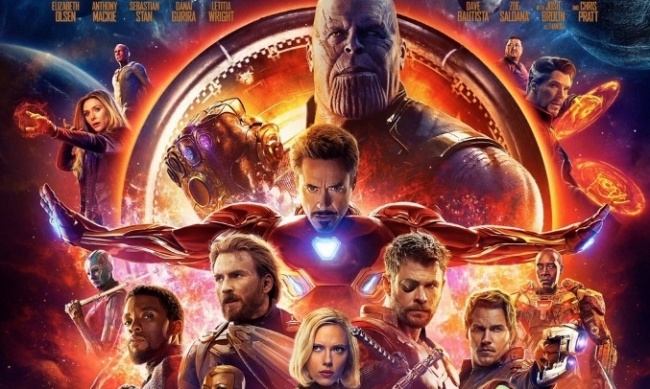
Column by Steve Bennett
Posted by Steve Bennett on November 14, 2018 @ 5:38 pm CT
MORE COMICS
Part of 1996 Marvel/DC Crossover
August 1, 2025
Writer Karl Kesel and artist Mike Wieringo are the creative team for the one-shot comic, which was first published in 1996 in the middle of a Marvel/DC crossover.
Crowdfunding Campaign Launches in October, Followed by Retail Release
August 1, 2025
Vault will crowdfund the graphic novel on the Backerkit platform in October, then release it to retail.
MORE COLUMNS
Column by Scott Thorne
July 28, 2025
This week, columnist Scott Thorne comments on the Edge of Eternities prerelease and on Magic: The Gathering news from the Hasbro earnings report.
Column by Rob Salkowitz
July 21, 2025
Columnist Rob Salkowitz lays out the Comic-Con panels of interest to industry professionals, current and aspiring creatives, educators, librarians and retailers.



